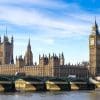Earlier this month, it was announced that National Insurance contributions and dividend tax would increase to pay for the spiralling costs of health and social care. This has been a controversial move, as the government promised, as recently as 2019, not to increase taxes.
But we live in a very different world to pre-Covid times. While the pandemic is not responsible for every failing in health and social care, it has pushed already struggling services to their limits. It has also drawn attention to the extent of underfunding in the NHS and care homes.
Clearly, money needs to be found from somewhere, and an increase in tax rates was deemed to be the best option. It has been suggested that the move could raise around £12 billion per year to help fund health and social care [1] .
National Insurance
Currently, you pay National Insurance on your earnings if you are employed or self-employed, and under State Pension age. The rates are:
· 12% for employees on earnings of between £9,569 and £50,270 per year.
· 9% for self-employed people on the same band of earnings.
· 2% on earnings over £50,270.
Employers also pay National Insurance, at a rate of 13.8% on behalf of their staff.
While National Insurance is separate from income tax, it is still a form of taxation.
National Insurance mainly pays for State Benefits. You need to accrue National Insurance contributions to qualify for the State Pension, statutory sick pay, maternity pay, or certain unemployment benefits.
Dividends
Dividends are a form of withdrawing profits from a company. You may receive dividends from your own business or from an investment portfolio which includes shares.
Currently, dividend tax applies as follows:
· 0% on the first £2,000 of dividends received in each tax year.
· 7.5% on dividends falling within the basic rate income tax band.
· 32.5% on dividends subject to higher rate tax.
· 38.1% on dividends above the additional rate tax band.
Dividends are not subject to National Insurance for the company or the recipient. This can make dividends an attractive alternative to salary when deciding how to draw your income.
What is Changing?
From April 2022, dividends and both forms of National Insurance (employee and employer) will increase by 1.25%.
From April 2023, a new Health and Social Care Levy will apply. This will still be 1.25%, but it will be carved out as a separate item. Unlike National Insurance, it will also be paid by anyone still working who is over State Pension age.
The increase will not affect anyone whose earnings are made up entirely of pension income or property rental.
How Much Additional Tax Will You Pay?
The extra tax will depend on how much you earn and how your income is made up. Some examples are shown below:
· Mike earns £15,000 per year as an employee. He will pay an extra £68 per year, as will his employer.
· Caroline earns a salary of £30,000. She, and her employer, will each pay an extra £255 per year.
· Tom receives dividend income of £1,500 from a share portfolio, £6,000 from his small business, and £15,000 per year in property rental, taking his total income to £22,500. He won’t pay any extra tax.
· Alex is a company director, and draws dividends of £75,000 per year. The change will cost Alex £913 per year.
· Jessica is 67, employed, and earns £20,000 per year. Currently she does not pay National Insurance, so will be unaffected when this is increased in 2022. But in 2023, when the new Health and Social Care Levy is applied, she will pay an extra £130 per year assuming she continues to work.
Some Options to Reduce Your Tax Bill
It’s unlikely that the new tax can be avoided entirely, and the concept of improving health and social care (providing this is carried out effectively, which is a whole other question) is one that few of us could argue with.
However, there are several ways in which you can improve your tax position:
· Make pension contributions. You will receive tax relief on your contributions and the fund will grow free of most taxes. You can take a 25% tax-free lump sum on retirement, and your pension income, while taxable, will not be affected by the current proposals.
· If you are employed or run your own business, the company can make pension contributions for you, either as an employer contribution or deducted from your salary. As well as offering tax advantages, these contributions can also reduce National Insurance Contributions for you and the company.
· Contribute to your ISA, as any dividends produced are free of tax. You can even transfer in existing funds and shares, providing this is within ISA contribution limits (£20,000 per year). Remember, transferring in assets you already own is a disposal for Capital Gains Tax purposes, and could incur tax, as well as stamp duty.
· If you are retired, think about how you draw your income. Drawing on cash first, and preserving your pension for as long as possible can be tax-efficient and allow your funds to increase in value.
· If you are reliant on your investments to produce an income, avoid seeking funds with the sole objective of producing a dividend yield. This can limit the options, and reduce the ‘total return’ achieved. It could be more efficient to take carefully planned capital withdrawals, or to invest in a bond.
Tax is a fact of life. We must accept that the rules will change frequently, and sometimes mainly for political reasons. The best way of dealing with this is to ensure that your own affairs are arranged as efficiently as possible.
Please do not hesitate to contact a member of the team to find out more about tax planning.
[1] National Insurance: What’s the new Health and Social Care tax and how will it affect me? – BBC News





